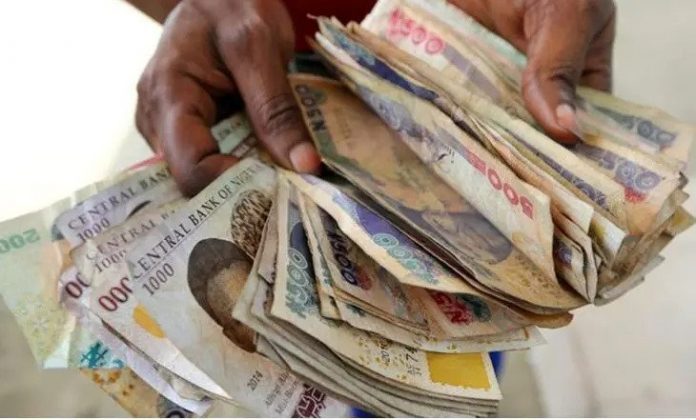At the Nigerian Autonomous Foreign Exchange Market (NAFEM), the value of the Nigerian naira increased by 1.9% to N793.34 per US dollar, anticipating an economic impact of $10 billion over the next several weeks.
During the Nigerian Economic Summit on Monday in the nation’s capital, Abuja, Finance Minister Wale Edun stated that Nigeria is anticipating an inflow of $10 billion in foreign currency in the upcoming weeks. In response, the official window FX market saw a favorable balance between FX supply and demand.
Traders’ optimism is increased since they believe the apex bank would have a sufficient cushion to cover the anticipated $10 billion in unpaid foreign exchange obligations. On Friday, the exchange rate fell to N808.27 per dollar.
Elsewhere in the parallel market, the local currency lost weight further as demand pressure bit harder amidst tight supply, closing at a new low of N1,210 against the US dollar. The government has now signalled a plan to ban forex trading across the streets.
“A call to outlaw bureau de change operation not impossible as Nigeria continues to search for market clearing rate gets tougher”, research analysts at LSintelligence Associates told MarketForces Africa in a chat.
Data from the Central Bank showed that the balance in the external reserves climbed despite a bearish performance in the oil market. On Monday. Brent crude is down 1.09% to $91.15 per barrel. Similarly, West Texas Instrument (WTI) crude fell by 1.06% to $87.15 per barrel.
The Minister explained that President Bola Tinubu recently signed two executive orders on Thursday to provide support to the currency market, which has been grappling with a persistent decline in value due to chronic shortages of the US dollar.
Under these orders, the government will permit the issuance of financial instruments in foreign currency domestically and facilitate the transfer of cash held outside the banking system into banks.
Meanwhile, the seemingly large FX inflow into the economy announced by Mr Edun is expected to complement other measures being implemented by the government to alleviate forex market pressures.
Earlier this month, the Central Bank of Nigeria declared the removal of an eight-year ban on 43 items that were previously restricted from accessing foreign exchange.












